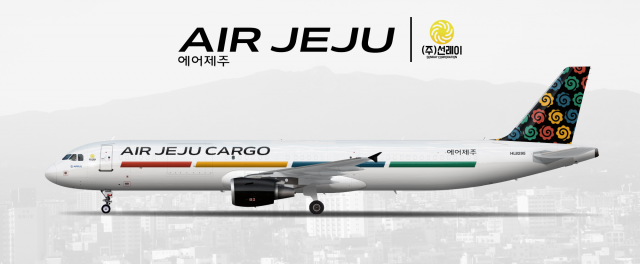
Air Jeju Airbus A321P2F
- Owner: crossfire (View all images and albums)
- Uploaded: May 24 2023 11:15 PM
- Views: 1,146
- Album Asia & Oceania Liveries

In 2021, Air Jeju made a significant expansion in its operations by venturing into the cargo sector. Up until that point, Air Jeju had primarily focused on passenger services, but recognizing the growing demand for air cargo transportation, the airline took the strategic decision to enter this market segment. The decision to start cargo operations was driven by several factors. Firstly, the global pandemic had caused a significant disruption in the aviation industry, leading to a decline in passenger travel. However, the demand for transporting goods and essential supplies remained strong, with e-commerce and international trade continuing to thrive. Air Jeju saw this as an opportunity to diversify its revenue streams and utilize its existing fleet and infrastructure for cargo purposes.
To kickstart its cargo operations, Air Jeju began by converting some of its existing passenger aircraft into freighters. By repurposing their existing fleet, Air Jeju could minimize the initial investment required for entering the cargo market. However, recognizing the long-term potential of the cargo industry, Air Jeju also decided to acquire dedicated cargo aircraft. In 2023, the airline made a significant acquisition by purchasing A321P2F aircraft. The A321P2F, developed by Airbus, is a converted version of the popular A321 passenger aircraft specifically designed for freighter operations. It combines the efficiency and reliability of the A321 with the capabilities required for cargo transportation, such as a large cargo door and a reinforced floor. By adding the A321P2Fs to its fleet, Air Jeju enhanced its cargo capacity and operational flexibility. These aircraft provided a range of benefits, including increased payload capabilities, improved fuel efficiency, and the ability to serve a wide range of destinations. The A321P2F's versatility allowed Air Jeju to transport various types of cargo, including perishable goods, pharmaceuticals, e-commerce shipments, and general cargo. The introduction of dedicated cargo aircraft enabled Air Jeju to expand its cargo network and offer reliable and efficient transportation services to its customers. The airline established partnerships with logistics companies, freight forwarders, and e-commerce platforms to cater to the growing demand for air cargo services. By leveraging its established passenger operations and reputation for quality service, Air Jeju was able to quickly establish itself as a reliable player in the cargo industry.
With its cargo operations, Air Jeju not only diversified its business but also contributed to the overall growth of the air cargo sector in South Korea. By providing efficient and reliable cargo transportation services, the airline played a vital role in supporting global trade, e-commerce, and the movement of essential goods. Overall, Air Jeju's decision to start cargo operations in 2021 and subsequently acquire A321P2F aircraft in 2023 proved to be a strategic move that allowed the airline to tap into the growing demand for air cargo services. By combining its passenger and cargo operations, Air Jeju established a strong foothold in the cargo industry, contributing to its continued success and growth.

 Sign In
Sign In Create Account
Create Account













Cool!